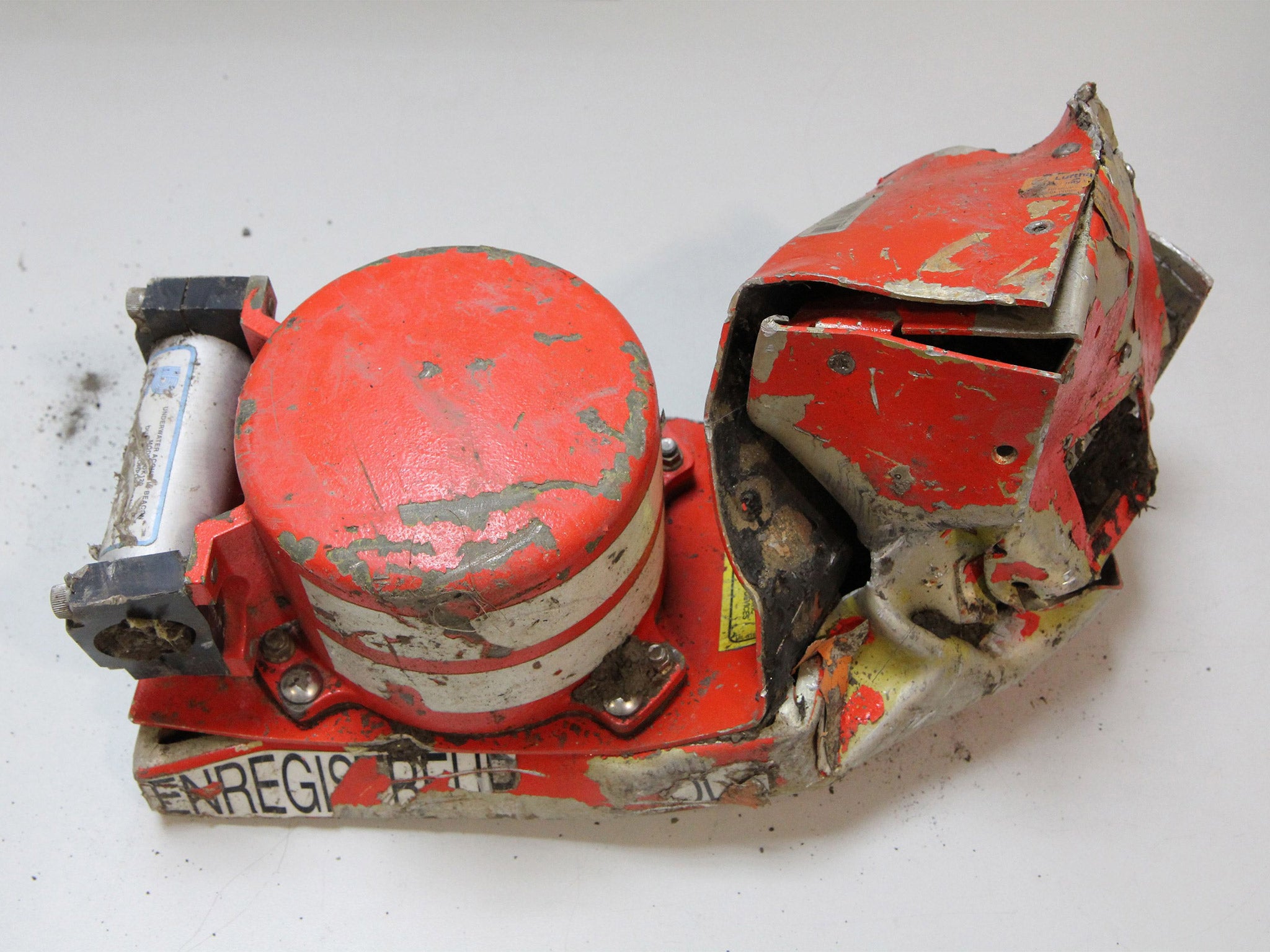Germanwings crash: Black box reveals final words of pilots on board doomed Airbus flight
As leaders of Germany, Spain and France visit the crash site, three Britons are revealed to be among the 150 dead

Your support helps us to tell the story
From reproductive rights to climate change to Big Tech, The Independent is on the ground when the story is developing. Whether it's investigating the financials of Elon Musk's pro-Trump PAC or producing our latest documentary, 'The A Word', which shines a light on the American women fighting for reproductive rights, we know how important it is to parse out the facts from the messaging.
At such a critical moment in US history, we need reporters on the ground. Your donation allows us to keep sending journalists to speak to both sides of the story.
The Independent is trusted by Americans across the entire political spectrum. And unlike many other quality news outlets, we choose not to lock Americans out of our reporting and analysis with paywalls. We believe quality journalism should be available to everyone, paid for by those who can afford it.
Your support makes all the difference.Investigators have extracted pilots’ voices from the mangled “black box” of the doomed Germanwings Airbus but remain at a loss to explain why the aircraft flew straight into a mountain at nearly 500mph.
Remi Jouty, director of the French air accident bureau (the BEA), said last night that it might take several days – even weeks or months – to discover why the Barcelona to Dusseldorf flight glided to destruction for more than 11 minutes after it broke off radio contact.
Three Britons are now known to have been among the 150 people who died when Flight 9525 smashed into the sheer face of a mountain in the French Alps on Tuesday morning.
Other victims include 72 Germans, 35 Spaniards and people from 12 other nationalities. Fourteen German teenagers and two teachers returning from a school trip, two German opera singers and three generations of one Spanish family are known to have been among the dead.
The first bodies were brought from the crash site last night to a makeshift mortuary in the village of Seyne-les-Alpes.
The German Chancellor Angela Merkel, Spanish Prime Minister Mariano Rajoy and French President François Hollande visited villages close to the crash scene, 100 miles north of Nice, yesterday.
Ms Merkel and Mr Hollande flew in a helicopter over the remains of the A-320, scattered over an area of steep and rugged terrain three miles from a road.
Ms Merkel described the crash as a “true tragedy” and promised that the families and loved ones of victims would “know what caused this calamity to happen”. Families of the victims are expected to arrive in the area today. The mayors of local villages have offered free accommodation and promised to build a memorial to the dead.
Mr Jouty last night said that his investigators had “in the last few minutes” managed to extract a digital audio recording from a severely damaged flight recorder found at the scene on Tuesday. He said that the aircraft’s long downward glide was substantially longer than the eight minutes which had originally been reported.
The pilots had last made routine radio contact at 10.30am local time as they approached the French coast from the Mediterranean, he said; the plane had last been detected by radar at around 10.41am and had probably crashed a few minutes later.
Mr Jouty said the plane had not exploded in mid-air and was flying “until the end”. It struck the side of a mountain at 6,000 feet while flying at “high speed”. The long downward glide of Flight 9525 might be “compatible with an aircraft still under pilot control”, he said, “except that no one could imagine any pilot flying an aircraft straight into a mountain”. Mr Jouty said that, at this stage, he could offer no explanation for the disaster but he was confident the mystery would be solved. Nothing in the facts of the flight, he said, suggested that the pilots had been killed by a sudden loss of pressure in the aircraft cabin.
He added: “At this stage we don’t have the slightest explanation or hypothesis on what caused this aircraft to descend until it struck the mountains or the reasons why it seems not to have responded to efforts from air control to establish contact with it.”
French government sources have dismissed a terrorist attack as “unlikely”. German security officials and Lufthansa, the parent company of Germanwings, have said there is no evidence pointing to a bomb or an attempted hijacking. The chief executive of Lufthansa, Carsten Spohr, a former pilot, said that the behaviour of the plane was “inexplicable”.
The “audio file” extracted from a damaged cockpit voice recorder covered the entire flight until the crash, said Mr Jouty. So far, however, it has been impossible to identify clearly which voices were speaking and when.
Much would depend on the discovery of the second box, the flight data recorder, Mr Jouty said. He denied reports that this recorder – which monitors all of an aircraft’s movements – had been found and destroyed.
French Transport Minister Ségolène Royal confirmed a French military Mirage jet fighter had investigated soon after the aircraft stopped respondingat 10.30am. The warplane was seen by eyewitnesses, following the airliner as it skimmed the Alpine ridges before it crashed. The pilot of the Mirage could, therefore, also possess crucial information on the Germanwings aircraft’s behaviour.
Join our commenting forum
Join thought-provoking conversations, follow other Independent readers and see their replies
Comments